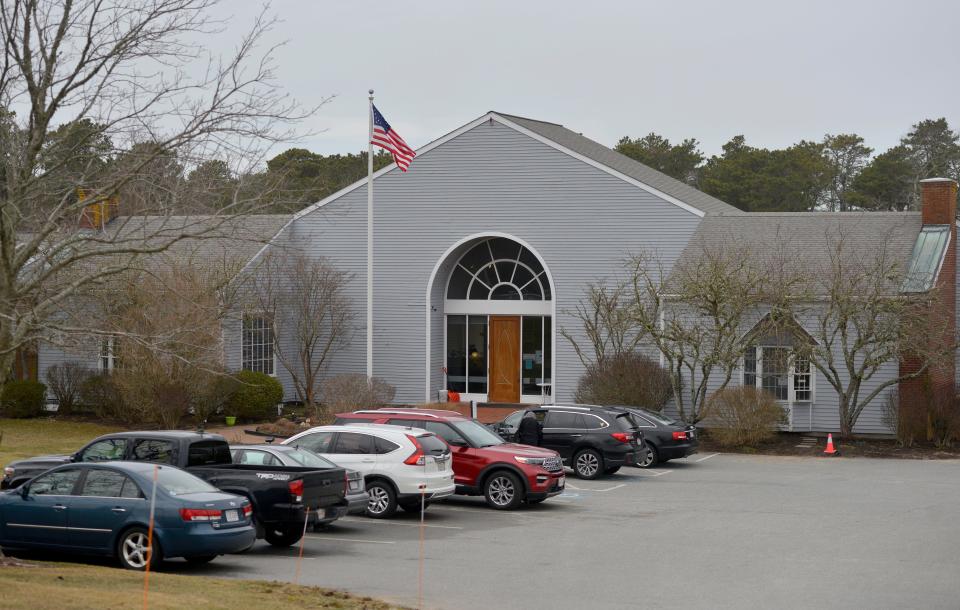Cape Cod needs more nurses. $2 million just opened up jobs, training for 106 new hires
CHATHAM — Six certified nursing assistants were in the room Friday at Broad Reach Healthcare when it was announced that the state approved $1.9 million to train and place more health care workers in the industry. State and local officials were on hand, but it was the workers — and the people they hope to welcome into their ranks — that the money will mean the most to.
“We’re constantly looking for new people,” said Broad Reach Administrator Jason Lavallee, calling the Cape’s health care industry an extremely challenging environment given costs of training, transportation and housing.
MassHire Cape & Islands Workforce Board received the $1,921,783 grant and will partner with Broad Reach Healthcare, Duffy Health Center, Gosnold, Inc. and Relief Home Health Services to train and place 106 participants in licensed practical nurse, CNA, and CNA Preceptor (mentoring) positions. Training partners include Cape Cod Community College in West Barnstable and the Upper Cape Cod Regional Technical High School in Bourne.
State Labor and Workforce Development Secretary Lauren Jones, who made the announcement, called the grant a tool to support the workforce needs of the entire state. The Cape was one of nine regions to receive such grants. Altogether $16.3 million is going to fund nine initiatives focused on job training and placement in jobs that are in high demand in the health care and behavioral health industry, she said.

The investment will lead to more than 1,800 jobs from the Cape to the Berkshires, Jones said. MassHire Workforce Boards in Worcester, Salem, Lowell, New Bedford, Springfield and Marlborough received grant funds, as did the Berkshire County Regional Employment Board, and Boston Private Industry Council.
The grant will open a pipeline for workers — some who may have no health care experience at all — to begin a path towards licensure and employment on the Cape.
Priority occupations on Cape Cod key to participation
The companies chosen to participate and the providers who will design and provide training were identified after a process that considered in-demand, priority occupations in each region, according to Commonwealth Corporation Senior Program Manager Thomas Heavren. Commonwealth Corporation is a quasi-public agency that distributes private and public funds for the initiative.
The regional programs have been developed to meet the different needs of each region, whether they be phlebotomists, surgical assistants, radiologic and pharmacy technicians, or other health-related careers, Heavren said.
At Broad Reach
The six CNAs at Broad Reach when the news came in know the need firsthand. Since the pandemic hit, they have been working hard to meet the demand on Cape Cod. A sign near the front door of the facility pays tribute to the workers who showed up daily during the difficult days when COVID-19 claimed the lives of many elderly patients. Now help is on the horizon.
Since July, 12 experienced CNAs have trained 10 new CNAs to work at the 132-bed facility. The new CNAs are working, adding about 400 hours of help per week.
In state hospitals alone, around 19,000 acute care positions are unfilled, according to an October report from the Massachusetts Health and Hospital Association.
“With this grant we were able to put together an individualized program that would help people getting their foot in (the) door in healthcare and setting them up for success,” Lavallee said.
The program will include 75 hours of state mandated classroom instruction, which is where the Cape Cod Community College and Upper Cape Cod Regional Technical High School come in. But what sets the program apart is the mentoring piece, Lavallee said.
Experienced CNAs will train the new hires, show them the ropes and be mentors for the duration of the program, leading up to their certification exams, Lavallee said. And there will be stipends to help students with costs such as child care or transportation, according to Kara O’Donnell-Galvin, Executive Director, MassHire Cape & Islands Workforce Board.
“We know how expensive it is to live and work on the Cape,” she said.
Pay for CNAs start at $20 per hour, according to Lavallee, who added even that amount isn't enough for the Cape.
Kevin Coughlin, executive director of the Greater Lowell Workforce Board, said the grants are a boost to the state’s health care industry. The pathway component of the program makes this very different from other programs, he added. Lowell will receive $2.51 million to train and place people as mental health peer support specialists, community health workers, and direct service associates.
“You enter as CNA but know there is a pathway to become something like a phlebotomist or nursing assistant,” he said.
Denise Coffey writes about business, tourism and issues impacting Cape Cod's residents and visitors. Contact her at dcoffey@capecodonline.com.
Thanks to our subscribers, who help make this coverage possible. If you are not a subscriber, please consider supporting quality local journalism with a Cape Cod Times subscription. Here are our subscription plans.
This article originally appeared on Cape Cod Times: No experience needed: $2M grant will train, place 106 Cape Codders
